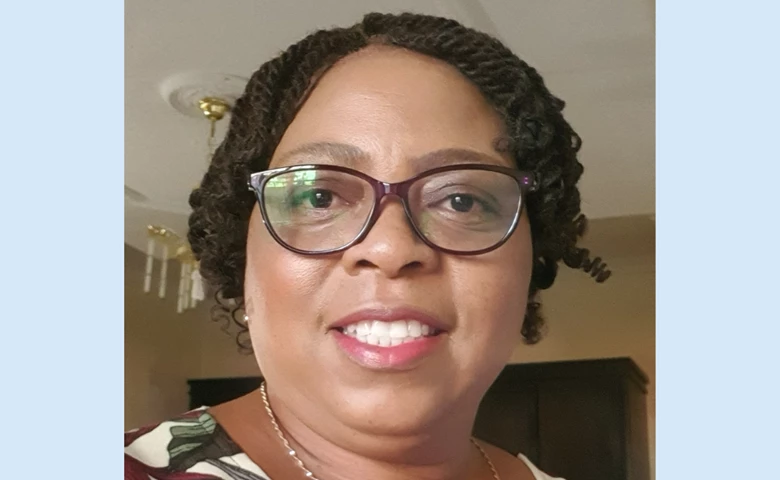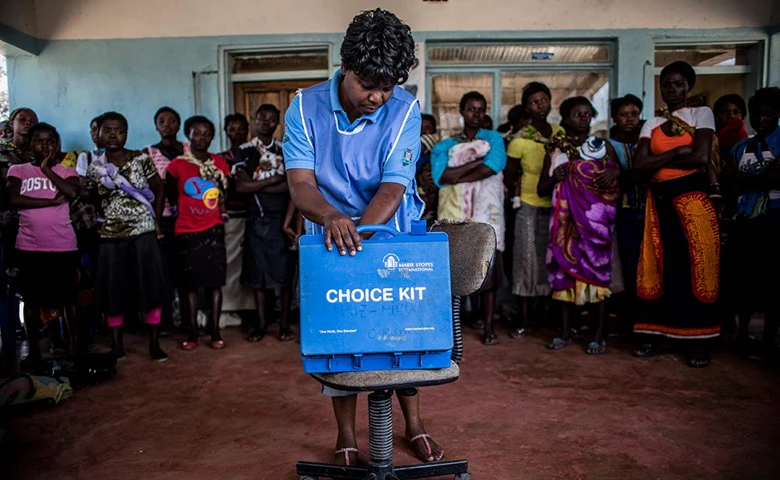
Our commitment to gender equality
MSI’s Commitment to Gender Equality
Gender equality is a universal human right and is foundational to MSI Reproductive Choices mission of ‘children by choice not chance’.
As a health care provider and advocate for women’s rights, MSI Reproductive Choices recognises that gender inequality impacts an individual’s needs, choices and access to health information and services. Understanding inequalities and the power relations that exist within families, communities and wider societies is essential to developing programmes that increase access to services, improve reproductive health outcomes and reduce stigma.
Our commitment to gender equality is informed by the Sustainable Development Goals, the Convention on the Elimination of All Forms of Discrimination against Women, the Beijing Declaration and Platform for Action, and the International Conference on Population and Development Programme of Action.
Our commitment to gender equality is part of our broader approach to diversity and inclusion. This is based on the understanding that gender inequality intersects with other forms of discrimination that can act as barriers to healthcare, such as race, age, marital status, disability, socio-economic status, gender identity, sexual orientation, caste, and social class. MSI recognises that gender is not binary, and that rigid gender norms and hierarchies systematically privilege some groups over others.
Sexual and reproductive health and rights are key to gender equality. For more than 40 years, MSI has delivered de-medicalised, client-centred services that aim to give adults and young people choice and control over their sexual and reproductive lives. Reproductive health services based on respect and informed choice can strengthen people’s agency, challenge negative gender norms, and help to improve their social and economic position. However, we acknowledge that this does not happen automatically; every aspect of service delivery and advocacy must be designed in a way that recognises and aims to challenge the prevailing power dynamics, inequality and discrimination that exist. This is particularly important when designing programmes to reach individuals who have traditionally faced significant barriers in accessing health services, such as women living in extreme poverty, adolescents, people with disabilities and sex workers.
Our programming focuses on reproductive empowerment, expanding the ability of the populations we serve to make strategic life choices in a context where this ability was previously denied to them; building the decision making and agency of vulnerable populations to assert their opinions, desires, and interests in ways that shape discussions, make and influence decisions, and challenge and change individual and community circumstances towards improved SRH outcomes.
To deliver our commitment to gender equality, MSI has established a Global Diversity, Equality and Inclusion Panel, an institutional advisory board responsible for identifying and communicating opportunities for MSI to sustain a DEI-focused culture within its leadership and organisational design. This includes (but is not limited to) a commitment to achieving greater female representation in leadership and supporting our staff and partners to integrate gender equality into the way we work. As MSI seeks to apply a ‘gender lens’ to our programming, Gender Equality and Social Inclusion Advisors support the implementation of gender-transformative and inclusive activities; and as a critical component of quality of care ensure programmes use gender-responsive approaches including training, safeguarding and first line response to sexual and gender-based violence. Working in 36 different countries, we recognise that we work across many societies and cultures at varying stages of the gender continuum. MSI is committed to taking an approach which considers this and nuanced cultural and societal barriers to achieving equality.
We aspire to a gender transformative approach at every level of our operations, and we recognise that we have a lot to learn from others. We are committed to building and strengthening relationships with leading partners so that we can work together to realise the potential of all our programmes to support gender equality in the communities and countries in which we work.
Definitions
Gender refers to the social attributes and opportunities associated with being ‘male’ or ‘female’ and the relationships between women and men, girls, and boys. These attributes, opportunities, and relationships are socially constructed and internalised through cultural norms and behaviours, including the roles that people who identify as male or female take on, and how they interact within households, schools, communities, and workplaces. They are context specific and may vary across cultures and throughout time. Gender determines what is expected, allowed, and valued in a woman or a man in a given context.
Sex refers to the biological and physiological characteristics that define humans as female, male, or intersex, such as chromosomes, hormones, and reproductive organs. Biological characteristics are not mutually exclusive, and some individuals may possess both male and female characteristics. Sex often interacts with but does not necessarily define a person’s gender identify or expression.
Gender equality refers to the equal rights, responsibilities, and opportunities of all individuals regardless of gender. Equality does not mean that all individuals are the same, but that rights, responsibilities and opportunities should not be defined by a person’s sex, gender identity, gender expression or sexual orientation. In line with our commitments to leave no-one behind, MSI builds the capacity of its staff to break down barriers to service access and utilization and deliver non-discriminatory and non-judgmental services to everyone.
Gender equity is the process of being fair to individuals of all genders, irrespective of their sex, gender identity, gender expression or sexual orientation. The concept recognizes that there are differences between men and women in terms of health needs, access to and control over resources and that these differences must be addressed to correct imbalances between men and women. Gender inequity in health refers to the unfair, unnecessary, and preventable inequalities that exist between women and men in the state of health, health care, and participation in health work. Gender equity strategies are used to ultimately achieve equality. Equity is the means; equality is the result.
Gender mainstreaming is a strategy for assessing the gendered implications of any planned action, including policies, programming, or legislation, and ensuring gender concerns and experiences are an integral consideration in the design, formulation, implementation, analysis, and monitoring of planned actions.
Gender diversity refers to the equitable representation of people of different genders, MSI recognizes that some people would prefer to have the freedom to change from one gender to another or not have a gender identity at all. Gender diversity is about acknowledging and respecting that there are many ways to identify.
Refers to how gender overlaps with other sociocultural factors, such as race, ethnicity, migratory status, indigeneity, religious or political belief, health, social-economic status, age, class, caste, sexual orientation, gender identity and inclusion or exclusion. Looking through the lens of intersectionality enhances our understanding of the complexity and particularity of inequalities in the lives of women and girls, men, and boys.
Refers to the process by which women gain power and control over their own lives and acquire the ability to make strategic choices through an expansion of agency throughout women’s lives, especially via participation and decision-making.
Learn more
Read some of MSI’s latest posts about gender equality, women in leadership, and DEI

A woman’s perspective on leadership at MSI
Pester Siraha, Country Director of MSI Zimbabwe, writes about her career and journey into a leadership position at MSI.

Gender equality isn’t possible without abortion
An International Women’s Day blog on how gender equality isn’t possible without abortion and contraception.

A Conversation on DEI
Inonge and Catherine talk about their passion for diversity, equality, and inclusion and their experiences of being on the Global DEI Panel.





